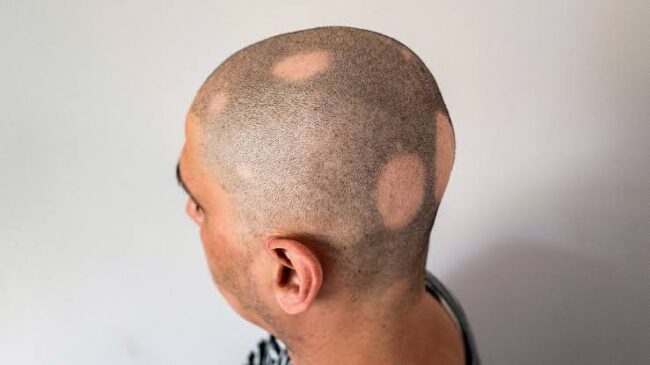Hair loss, medically known as “alopecia” or “baldness,” is the absence of hair from where it is expected; it could be your head or body. Alopecia can happen as a result of medications, disease or naturally. The standard type is alopecia areata, caused by autoimmune and telogen effluvium, which occurs after psychological stress.
Symptoms
-
When your hair begins to lose quickly after combing on different occasions, it could be a sign of hair loss.
-
Alopecia can start with small bald patches, then over time, it spreads across the head.
-
Another symptom is when the hair begins to have space or becomes wider than usual, especially for a female.
Causes of Alopecia
1. Medications
Hair loss can occur after using several medications meant for these health conditions — diabetes, high blood pressure and heart disease. Moreover, taking contraceptive pills, acne medications, and steroids can also lead to alopecia.
2. Pregnancy
You can experience hair loss after giving birth, although it might not cause total absence. This is because, during pregnancy, the hair becomes thicker due to the circulation of estrogens. Then, after childbirth, the level of estrogen drops and the hair reduces. Women accustomed to fertility drugs can also be affected.
3. Obesity
Obesity caused by stress can affect the hair follicle. If you also like eating foods high in fat, you can experience hair loss.
4. Infection
Infections such as fungal and mites can reduce hair growth or damage the essential nutrients it needs.
5. Traumas
The traumas after surgery, giving birth and severe stress can make you go through ‘telogen effluvium’ — this is when your hair starts to shed, remains less thick and stops growing.
Read Also: Onions as home remedy for hair loss
Treatments
1. Surgery
Surgery is a widespread treatment for people with hair loss. You can undergo a hair transplant, which includes hair loss reduction, follicle transplant and scalp flaps.
2. Chemotherapy
Hypothermia caps are used for chemotherapy because they reduce and prevent further hair loss. But with the presence of leukemia or cancer in the body, chemotherapy for the hair is not possible.
3. Medications
Most medications are just to prevent hair loss, not to help regrow it.
